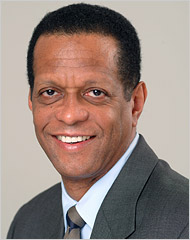(p. A10) When Jeff Bezos announced last week that he and his wife, MacKenzie Bezos, would create and operate a national network of Montessori preschools, few were more surprised than Montessori organizations and leaders themselves.
In a statement released on Twitter, Mr. Bezos, the chief executive of Amazon and the wealthiest person in the world, said the preschools would be “in underserved communities.” He continued, “We’ll use the same set of principles that have driven Amazon. Most important among those will be genuine, intense customer obsession. The child will be the customer.”
News of the initiative, called the Bezos Day One Fund, came with an eye-popping commitment: $2 billion, some of which will support organizations that help homeless families.
. . .
Montessori’s unique combination of freedom and rigidity — a famously “child-centered” practice with a host of rules and restrictions — can make its classrooms look drastically different from traditional ones.
Students span a three-year age range, say, between 3 and 5. Dressing up or talking about fairies or superheroes is not allowed. Instead of a play kitchen, there may be a real one, where students might pour their own juice into a glass cup, not a plastic one, so that they will learn the lesson that a glass can break if they are careless.
And every day, students get three-hour blocks of unscheduled, uninterrupted “work” time — the word “play” is not used — in which they are free to choose their activities, whether finger-painting or sorting wooden pegs.
. . .
With little else to parse, Montessori leaders pored over Mr. Bezos’ brief statement, which described the planned schools as “Montessori-inspired.” The term “Montessori” is not copyrighted, and any school can choose to describe itself as such.
. . .
Mr. Bezos attended a Montessori preschool in Albuquerque in the 1960s and is one of several tech industry leaders with personal ties to the method. The Google founders, Sergey Brin and Larry Page, have attributed some of their success to their Montessori educations. Dr. Montessori’s reframing of child’s play as “work,” driven by the child’s choices and interests, is, in many ways, a natural fit for Silicon Valley’s culture of founder-driven entrepreneurship and innovation.
For the full story, see:
Dana Goldstein. “‘Money, but Few Details, In Bezos Montessori Plan.” The New York Times (Saturday, Sept. 22, 2018): A10.
(Note: ellipses added.)
(Note: the online version of the story has the date Sept. 21, 2018, and has the title “‘Jeff Bezos Cites a Big Number, but Few Details, in Plan for Low-Income Montessori Preschools.”)


 Columnist Bob Herbert. Source of photo: online version of the NYT column quoted and cited above.
Columnist Bob Herbert. Source of photo: online version of the NYT column quoted and cited above.